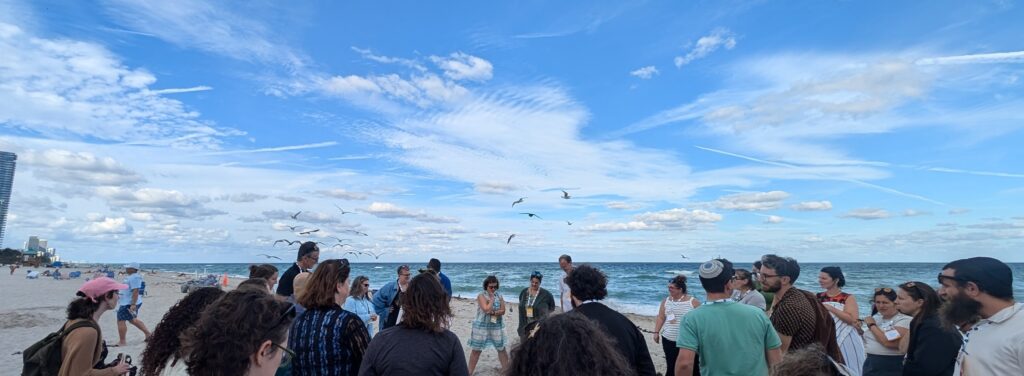Division within Jewish Communities Cited Ahead of Antisemitism as Barrier to Hope in M² Hope Study of Jewish Communal Professionals
During times of crisis, nonprofit workers seek strong leadership, clear guidance, and practical tools from their employers
New York, September 18, 2025 – M²: The Institute for Experiential Jewish Education (M²) today released findings from its first-ever Hope Study, a survey of nearly 950 Jewish communal professionals across North America. Conducted in the summer of 2025, the Hope Study is the largest effort of its kind to understand how Jewish professionals are sustaining — or losing — hope during a time of unprecedented crisis.
The study found that only 24% of Jewish communal professionals often feel hopeful about the future, compared to 82% of the U.S. population, with internal divisions within Jewish communities — not external threats — emerging as the greatest obstacle to sustaining hope. Respondents most often described political disagreements and sensitivities around Israel as the hardest challenges to navigate. Leadership shortcomings were the second most common barrier to hope, while external antisemitism, though deeply affecting personal well-being, was cited less often as undermining professional hope and resilience.
Key insights include:
- Internal communal division is the greatest obstacle to sustaining hope. Professionals report that tensions and political disagreement within the community erode their confidence and leave them uncertain about the future, making it harder to feel resilient in their work. Leadership gaps compound this challenge, while external antisemitism was cited less often as a direct threat to hope.
- External threats weigh heavily on personal well-being, but less on professional resilience. 65% said the situation in Israel affects their personal well-being, and 59% worry extensively about antisemitism. Yet only 26% reported antisemitism significantly affecting their work performance, underscoring that hope in professional life is challenged more by internal dynamics than external threats.
- Belonging and purpose fuel hope. 73% report feeling a strong sense of belonging to the Jewish people often or very often, and 55% said they often feel energized by their work. The most important source of hope, cited by 85%, was the impact of their work on others, followed closely by support from colleagues (73%).
- Principled leadership is a key generator of hope. Respondents said they are sustained when leaders provide moral clarity and communicate with conviction, especially in moments of crisis.
- Collective supports are valued over individualized ones. 63% requested clear guidance for sensitive conversations, 48% asked for forums to process current events with colleagues, and 44% requested peer support groups. By contrast, 42% prioritized individualized mental health resources. These preferences show that professionals find hope in shared spaces, practical tools, and communal solidarity.
Based on these findings, M² recommends building authentic community infrastructure that restores and strengthens hope across the field. This includes training leaders to combine moral clarity with empathy, equipping staff to navigate sensitive conversations, creating systems to make professional impact more visible, and deepening professionals’ connection to Jewish belonging.
“The Hope Study makes clear that what undermines hope most is division within our own community and a lack of clarity from leaders,” said Shuki Taylor, Founder & CEO of M². “ Yet the study also shows where hope is being replenished — in belonging, in meaningful work, and in colleagues who lift each other up. Our responsibility is to nurture those sources of hope so professionals can continue to serve the Jewish people with strength and conviction.”
“Jewish communal professionals are the lifeblood of Jewish life – they are the ones holding people together in times of crisis,” said Linda Adler Hurwitz, Chair of the Board at M². “By listening to their voices through the Hope Study, M² is taking an essential step to ensure that those who sustain our communities are themselves sustained. We believe that by understanding what fuels and depletes their hope, we can build a stronger, more resilient Jewish future.”
To read the Abridged report, please click here.
To read the FULL report, please click here.
For a recording of the Hope Study Findings Webinar, Click here.
for the Hope Study Visual Guide, click here >
For inquiries about the Hope Study, contact info@ieje.org.
